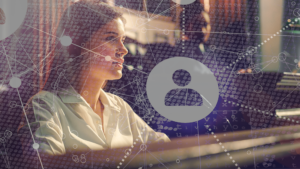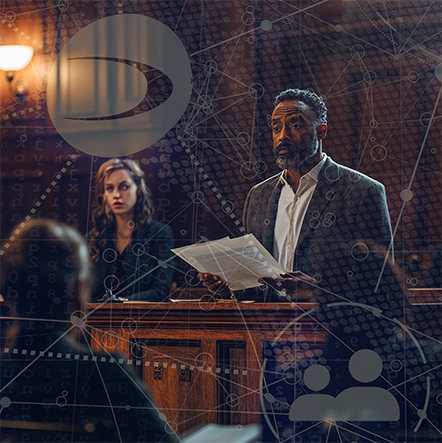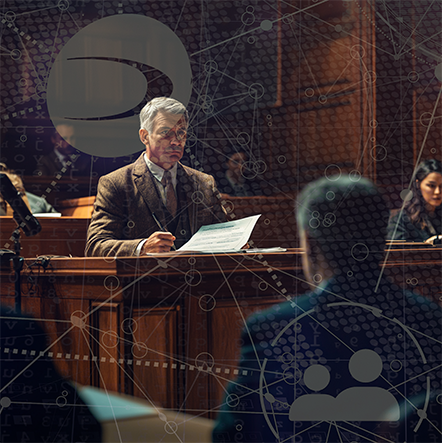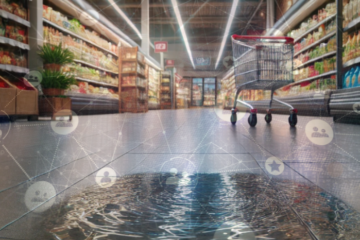In legal cases involving slip, trip, and fall incidents, understanding human behavior and environmental factors is critical to establishing liability and causation. Human factors expert witnesses offer unique insights into how individuals interact with their environments, providing analysis that can significantly influence case outcomes. Their expertise helps attorneys demonstrate how specific conditions contributed to accidents, making them essential assets in litigation. This blog will explore the benefits, roles, and qualifications of human factors expert witnesses and provide real-world examples of their impact on slip, trip, and fall cases.
The Role of Human Factors Expert Witnesses in Slip, Trip, and Fall Cases
A human factors expert witness specializes in understanding how people interact with various systems, environments, and products. In slip, trip, and fall cases, these experts analyze the role of environmental conditions, human behavior, and other factors that may have contributed to an incident. Their expertise is crucial in legal settings where determining liability involves demonstrating how people respond to certain conditions and whether those conditions directly led to an accident.
Key Responsibilities of Human Factors Experts
Human factors experts perform several critical roles in slip, trip, and fall cases:
- Evaluating Environmental Conditions: They assess factors such as lighting, surface texture, visibility, and other environmental elements that may have contributed to the accident. This evaluation helps establish whether the conditions were unsafe and whether the property owner failed to address them adequately.
- Analyzing Human Behavior: Experts evaluate cognitive factors like attention, perception, distraction, and reaction times to understand how individuals interacted with the environment. This analysis can help determine whether the plaintiff had a reasonable opportunity to avoid the hazard.
- Providing Expert Testimony: These experts testify in court to explain complex human behavior and environmental issues simply for judges and juries to understand. Their insights help clarify the circumstances leading to the incident and establish whether the defendant met safety standards.
How Human Factors Experts Benefit Slip, Trip, and Fall Cases
Human factors expert witnesses provide unique insights that can strengthen slip, trip, and fall cases in several ways. Their analysis helps attorneys establish causation, clarify liability, and support negligence claims.
Establishing Causation in Slip and Fall Accidents
Proving causation is often challenging in slip and fall cases, as attorneys must demonstrate that a hazardous condition directly caused the plaintiff’s injuries. Human factors experts help establish causation by:
- Identifying Environmental Hazards: They assess elements such as wet floors, uneven surfaces, or poor lighting to determine if these conditions significantly contributed to the incident. Their evaluation can show that the property owner failed to maintain a safe environment.
- Linking Hazards to Human Behavior: Experts explain how specific environmental conditions, such as inadequate lighting or slippery surfaces, affected the plaintiff’s ability to perceive and avoid hazards. For instance, if the fall occurred in a dimly lit area with a wet floor, the expert might testify that poor lighting impaired the plaintiff’s ability to see the hazard.
Clarifying Liability and Breach of Duty
Human factors experts play a vital role in determining whether the property owner upheld their duty of care. They assess:
- Compliance with Industry Standards: Experts evaluate whether the defendant followed proper safety protocols, including regular inspections and maintenance. If the property owner failed to follow industry standards, this could support negligence claims.
- Breach of Duty: They provide evidence to show that the defendant did not sustain their legal obligation to maintain a safe environment. By analyzing the conditions present at the time of the incident, they can help establish if the property owner took reasonable and appropriate steps to prevent the accident.
The Importance of Human Behavior Analysis in Legal Cases
Understanding human behavior is essential when determining liability in slip, trip, and fall cases. Human factors experts analyze how cognitive and behavioral factors may have contributed to the incident.
Examining Attention and Distraction
In many slip and fall cases, distractions or cognitive overload significantly affect a person’s ability to perceive and avoid hazards. Human factors experts consider:
- Cognitive Load: They assess whether stress, multitasking, or other mental factors impaired the plaintiff’s ability to notice potential hazards. For example, someone rushing or carrying objects may be less aware of their surroundings, increasing the fall risk.
- Distraction Factors: Experts analyze environmental elements like noise, crowding, or visual stimuli that could divert attention away from potential dangers. Their analysis can help establish whether the plaintiff’s actions were reasonable.
Assessing Perception and Reaction Times
Another crucial aspect of human behavior analysis involves understanding how individuals perceive and react to hazards. Human factors experts can evaluate:
- Reaction Time Studies: They might use data on typical human reaction times to demonstrate that the plaintiff did not have enough time to avoid a hazard. For instance, if a slip occurred due to an unexpected wet spot, the expert could argue that the plaintiff’s reaction time was insufficient to prevent the fall.
- Visibility and Perception: Experts assess whether factors like poor lighting, obstructed views, or visual impairments affected the plaintiff’s ability to detect the hazard. By providing evidence on how these elements influenced the incident, they help clarify whether the environment was hazardous.
Real-World Examples of Human Factors in Slip, Trip, and Fall Cases
To better understand the impact of human factors experts, let’s look at real-world cases where their analysis played a crucial role.
Case Study 1: Slip Due to Wet Flooring in a Restaurant
In one notable case, a restaurant patron slipped on a wet floor and sustained injuries. The restaurant argued that a warning sign was placed near the spill, indicating they had taken reasonable precautions. A human factors expert assessed the situation and found that poor lighting in the area made the warning sign challenging to see from a distance. Their testimony demonstrated that inadequate lighting and placement of the sign contributed to the incident, leading to a favorable settlement for the plaintiff.
Case Study 2: Trip on Uneven Pavement Outside a Retail Store
In another case, a shopper tripped over a raised section of pavement outside a store. The store argued that the height difference was minimal and did not constitute a hazard. However, a human factors expert explained how even a slight elevation change could pose a significant tripping risk, especially in low-light conditions or crowded areas. This analysis helped establish that the store failed to maintain a safe entryway, supporting the plaintiff’s negligence claim.
Qualifications and Expertise of Human Factors Expert Witnesses
Human factors experts possess a combination of education, experience, and training that qualifies them to provide valuable insights in legal cases.
Educational Background
Most human factors experts hold advanced degrees in fields such as:
- Human Factors Engineering: Focuses on optimizing human interaction with systems.
- Cognitive Psychology: Studies mental processes like perception, attention, and decision-making.
- Ergonomics: Concentrates on designing environments and products for user safety and comfort.
- Industrial Engineering: Involves analyzing and improving complex processes and systems.
Their education equips them with a deep understanding of human behavior and its implications in various settings.
Professional Experience
Qualified human factors experts often have extensive experience in areas such as:
- Product Design and Usability Testing: Involves assessing the safety and functionality of products.
- Accident Analysis and Investigation: Focuses on understanding the causes of incidents.
- Workplace Safety Assessments: Examines how environmental factors impact employee safety.
Their practical experience enables them to apply their knowledge effectively in legal contexts.
Legal Training and Certifications
In addition to academic and professional experience, many human factors experts undergo specialized training to prepare for their role as expert witnesses. This includes:
- Expert Witness Training Programs: Covering courtroom procedures, effective communication, and cross-examination strategies.
- Mock Trial Participation: Allows experts to practice delivering their findings clearly and confidently.
- Certifications: Membership in organizations like the Human Factors and Ergonomics Society (HFES) or certification from the Board of Certification in Professional Ergonomics (BCPE) enhances their credibility.
Challenges Faced by Human Factors Expert Witnesses
While human factors experts provide valuable insights, they also face challenges in litigation. Understanding these challenges can help attorneys and experts prepare more effectively.
Establishing Credibility in Court
Experts must establish their authority by showcasing their qualifications, experience, and relevant case history. They do this by:
- Presenting Empirical Data: Using scientific studies and evidence to support their findings.
- Detailing Relevant Case Experience: Providing examples of past cases where their testimony influenced the outcome.
Navigating Cross-Examination
Opposing counsel may try to discredit the expert’s methods or conclusions. To counter this, human factors experts prepare thoroughly by:
- Anticipating Potential Lines of Questioning: Developing responses to common challenges.
- Simplifying Technical Concepts: Breaking down complex information in ways jurors can understand.
When to Consider Hiring a Human Factors Expert for Your Case
The decision to hire a human factors expert depends on the specific circumstances and complexity of the case. Situations where their involvement is particularly beneficial include:
Cases Involving Complex Environmental Interactions
If the case involves intricate details about how environmental conditions contributed to the accident, a human factors expert can help clarify these elements.
Situations Where Causation Is Disputed
When disputing the link between the hazardous condition and the fall, human factors experts support negligence claims or challenge comparative fault arguments with evidence.
Legal Matters Involving Safety Compliance
In cases where safety standards and regulations are relevant, human factors experts can evaluate whether the defendant adhered to these requirements.
Conclusion
Human factors expert witnesses are invaluable in slip, trip, and fall cases, providing essential insights into human behavior, environmental conditions, and their interplay. Their ability to establish causation, clarify liability, and support negligence claims helps strengthen legal arguments and improve case outcomes. Attorneys can significantly benefit from engaging human factors experts, especially in complex cases where the circumstances of the incident are not easily understood. By leveraging their expertise, legal teams can present stronger cases and advocate more effectively for their clients.
Read more:
- Advocate Magazine | The Roles of Expert Witnesses In Motor-Vehicle-Accident Litigation

Are you an Attorney?
We’re here to help! Let us connect you with qualified professionals who are available for depositions and testimonies. Our database includes over 15,000 experts with a wide range of specialties. Reach out today to fast-track your search for an expert witness.







